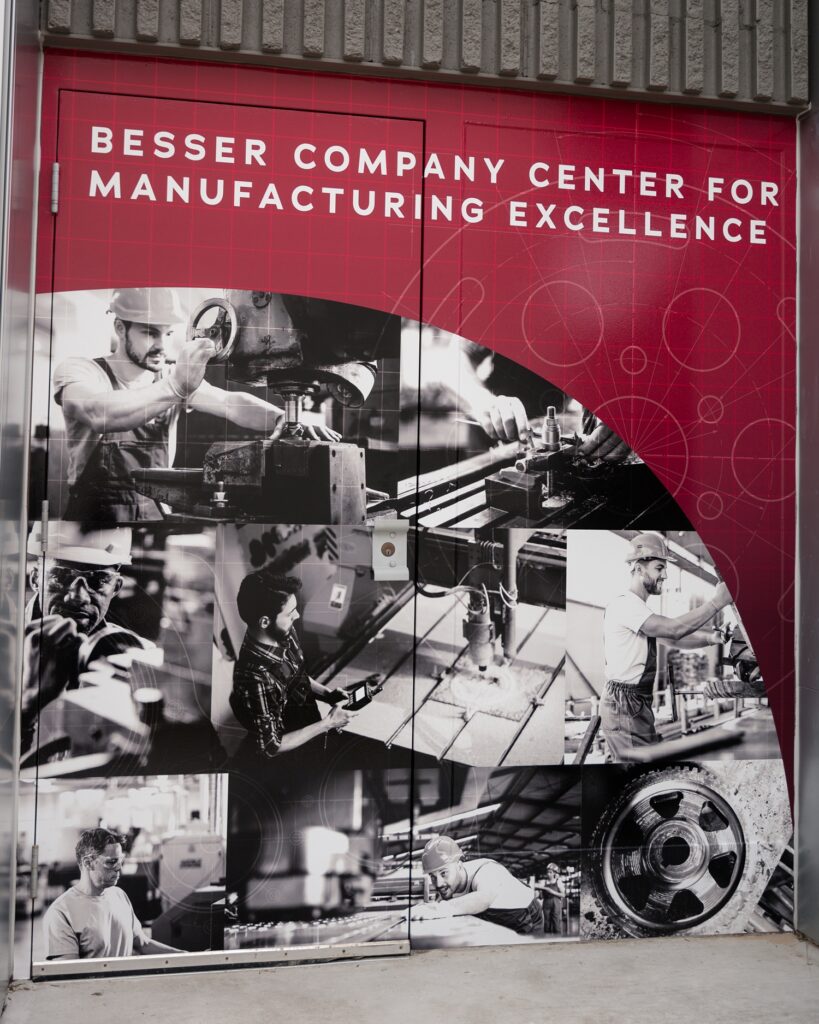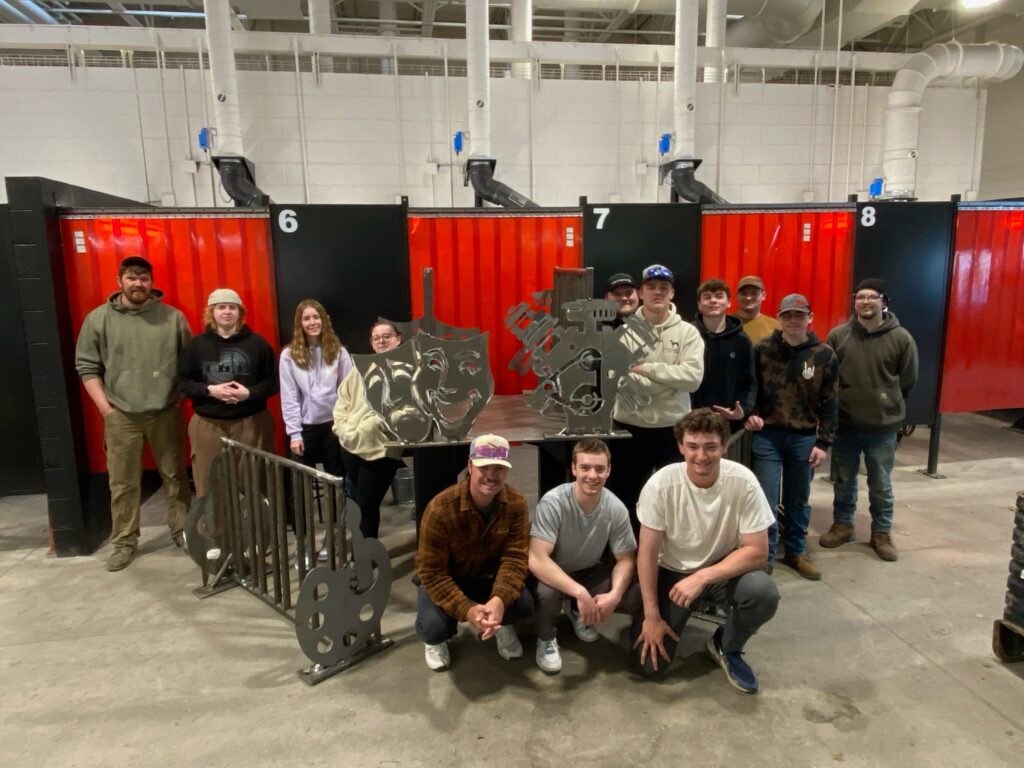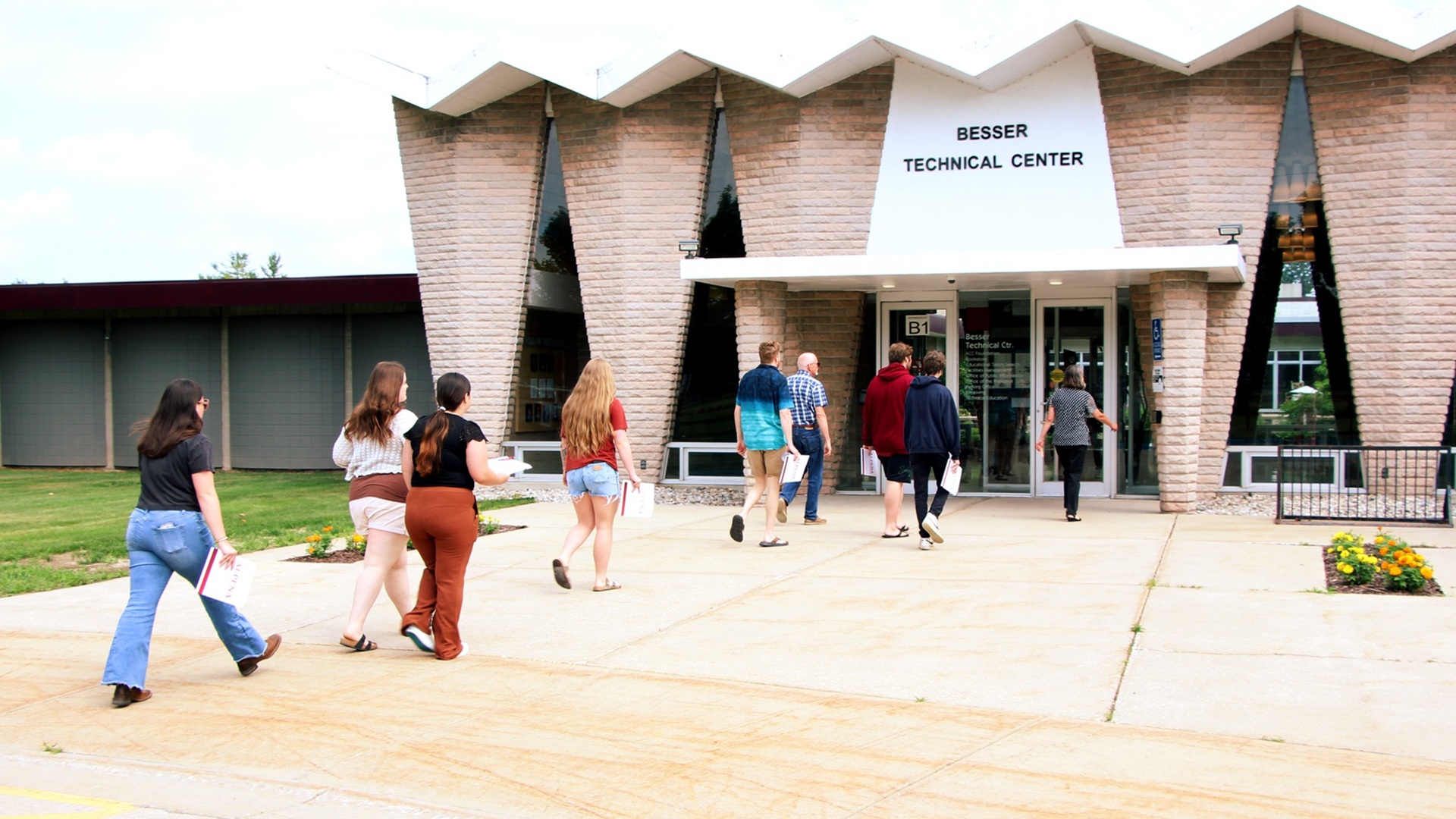Established in 1952, Alpena Community College spent the last 72 years building a campus that provides an effective learning experience with a personal touch.
“Our staff and instructors work well to create an intimate and welcoming environment,” said Dawn Stone, Dean of Workforce Development. “They know all the students by name and get to know their strengths and weaknesses and set them up for success.”
That individual attention becomes valuable in the manufacturing and technology courses as ACC hires teachers who work in those fields and welcomes industry experts to visit the campus and participate in the classroom.
“We created an organic environment where students are comfortable with them,” Stone said. “I see it in all the tech fields. There’s time to ask questions, get specific and detailed answers about what is required of the workforce.”
That connection with experts also permeates the ACC’s administration through collaboration with experts who advise the college on ways to improve the curriculum and hands-on learning.

One such partnership involved the Besser Company, who joined ACC in 1954 to start a concrete technology initiative. The World Center for Concrete Technology opened on campus in 2000. With a mix of public and private funding, the $8 million project built a 42,000-square-foot facility for material-based training, research, and product testing in concrete masonry for Concrete Technology AAS students and the industry workforce. It is the only one of its kind in the U.S. and has sent hundreds of qualified into the worldwide workforce.
Stone said the program requires an internship, and students receive five to seven job offers upon graduation.
Climbing Higher
ACC also offers a Utility Technology Program (Lineworker Training) that incorporates a dedicated training site.
Students receive hands-on experience installing utility poles and wire lines, operating bucket trucks, trenchers and digger trucks while using industry-standard equipment.

The college offers three levels of training:
- A one-year vocational certificate
- Advanced certificate (2 semesters + orientation)
- Associate of Applied Science (AAS) degree (includes general-education courses)
Upon finishing the program, graduates spend about four years as lineman apprentices and explore roles such as substation techs, field engineers, meter calibrators, and fiber optic installers.
Within a relevant area of study, ACC has a Utility Arborist Program. It’s a one-year credit program that trains workers in tree trimming and line‑clearance work, pruning vegetation near energized utility lines, using bucket trucks, chainsaws, and simulated storm‑damage scenarios. Pesticide licensure is also part of the program. Both Utility Tech and Utility Arborist give students an opportunity to obtain their CDL-A.
Other key programs in manufacturing & technology

● Machine Tool Technology offers a Basic Certificate, Advanced Certificate, and AAS degree track. The program, accredited by NIMS, involves students in competitions such as SkillsUSA, where ACC students have won many state medals.
● CAD/CAM Technology is structured similarly with the Basic Manufacturing Technology Certificate, the Advanced CAD/CAM Certificate, and the CAD/CAM AAS degree. Graduates often transfer to bachelor’s degrees in manufacturing engineering technology at universities like Ferris State or Lake Superior State.
● Mechanical Design/Engineering Technology emphasizes applied CAD/design and hands‑on mechanical skills. It also serves as a transfer point into four‑year degrees, like Product Design Engineering Tech at Ferris State.
Stone said ACC’s emphasis on manufacturing and technology training extends to high school students in dual enrollment, attracting employers seeking a dedicated workforce.
“We work to get those students into our tech programs,” she said. “They get hired because business leaders know those students will continue on with their education and training because they have shown interest in the field.
“Businesses want workers who fit in their culture. What is a better way than to be able to talk directly to the students to find who best suits their culture?”
The college’s focus on student training grows as it follows industry trends, as well as understanding the changing demands in the manufacturing and technology industries, by hiring instructors who are working in those fields.
“They work in the field, so they know what is needed,” Stone said, “and they have the creative freedom to help prepare the students.”
That freedom also breaks down academic barriers by including technical math and technical writing, supported by teachers and staff coordinating classroom goals.
“The instructors work together to make sure they are teaching what is necessary,” Stone said.
Learn more about Alpena Community College here.

From ACC President Dr. Donald C. MacMaster
In January, federal IPEDS (Integrated Postsecondary Education Data System) statistics documented that ACC attained the highest graduation rate among the 28 Michigan community and 3 tribal colleges by a substantial margin—the fourth consecutive year ACC has finished first in graduation rate according to IPEDS data. In June, the Carnegie Institute, a highly regarded non-profit focused on researching postsecondary educational performance and student success outcomes, named ACC an Opportunity College for its Higher Access Higher Earnings student outcomes—one of only two Michigan community colleges to receive this distinction. Higher Access according to the Carnegie study refers to affordability, while Higher Earnings references what graduates earn after they enter the workforce. Only 9.5 percent of post-secondary educational nationally were named Opportunity Colleges by Carnegie. ACC was one of them.




